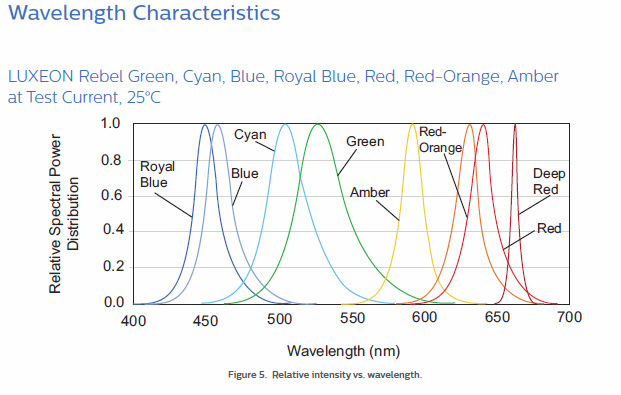Myogenesis
Newly Enlightened
- Joined
- Apr 30, 2015
- Messages
- 2
I want to outfit my bathroom and kitchen with dim 660nm strip lights for use at night. The brighter and the more blue the light, the more your sleep (metatonin production) is disturbed.
Luxeon Rebel Deep Red 660nm LEDs seem to be ideal for this, but I can't find them on a strip anywhere... Essentially I'd like them to emit as high up the visible spectrum as possible, with very little emission under ~650nm:

I'd like to mount them in the corner with something like this:

I have a bit of soldering experience, but I'm unsure what options are available. Any suggestions? Could I use breadboards to mount loose LEDs?
Luxeon Rebel Deep Red 660nm LEDs seem to be ideal for this, but I can't find them on a strip anywhere... Essentially I'd like them to emit as high up the visible spectrum as possible, with very little emission under ~650nm:

I'd like to mount them in the corner with something like this:

I have a bit of soldering experience, but I'm unsure what options are available. Any suggestions? Could I use breadboards to mount loose LEDs?

